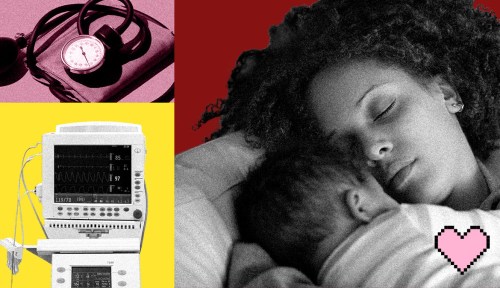As the country grapples with a maternal healthcare crisis and insufficient infrastructure for postpartum care, one tool to help address mental health struggles for new parents—a dedicated postpartum depression pill—has arrived.
On Friday, the Food and Drug Administration (FDA) approved the first and only pill to treat postpartum depression (PPD). Zurzuvae (zuranolone) is a 14-day treatment for PPD that can rapidly improve symptoms for people who suffer from what can be a debilitating mood disorder.
The approval comes on the heels of a double-blind placebo-controlled study published in the American Journal of Psychiatry. The study found that the pill was highly effective in relieving postpartum depression symptoms. It was fast-acting, with some patients showing improvements in mood within just three days. And it was also generally well-tolerated, with the most common reported side effects being drowsiness, dizziness, and sedation.
While many people who have just given birth suffer from mood swings and sadness in the days after delivery, postpartum depression that lingers and grows worse (sometimes including thoughts of self-harm) in the months that follow can be debilitating for those who experience it. The condition often goes unreported, yet even so, rates of postpartum depression are on the rise thanks to more people with pre-existing mental and physical health conditions, which are linked to higher instances of PPD, becoming pregnant. It’s risen to such unfortunate prominence that addressing maternal mental health is a part of the “Momnibus Bill” currently wending its way through Congress.
Zurzuvae could play a role in the offensive. The FDA granted “priority review” to the drug in February after the maker, Sage Therapeutics and Biogen, officially filed it with the agency. That means the FDA recognizes the urgent need for the drug, and promised to review it within six months. The fruits of that process arrived Friday with the approval, and Zurzuvae should be available in late 2023, after the Drug Enforcement Administration schedules it as a controlled substance (which should happen within 90 days).
So what makes Zurzuvae such a game-changer? It provides the brain with a neuroactive steroid that stimulates the GABA receptors, which play a role in our response to anxiety and stress. Naturally, that steroid—which is derived from the hormone progesterone—rises during pregnancy, and then drops after childbirth. While the causes of PPD can be diffuse, changes in hormone levels are thought to play a role. So Zurzuvae could help even things out. (Just keep in mind, it’s not being considered for other conditions like postpartum psychosis or anxiety, which may require other treatments.)
What’s more, the ease of usage and timeline for Zurzuvae are pretty notable. While a previous version of the drug given intravenously was shown to be successful, it required people to get treatment in a hospital. This version is a pill taken daily at home for a course of 14 days. The study showed fairly rapid improvements in PPD: Some people experienced a difference at three days, while others saw scientifically significant improvements at days 15, 28, and 45 (when scores on the Hamilton Depression Rating Scale were taken). Compare that to current treatments for depression, like SSRIs, which can take months to have an impact.
“Today marks a groundbreaking day for the treatment of PPD, as with Zurzuvae we now have an oral treatment option that can provide rapid improvements in depressive symptoms,” Kristina Deligiannidis, MD, a principal investigator in the Zurzuvae clinical development program and professor at The Feinstein Institutes for Medical Research, said in a statement from Biogen. “As a perinatal psychiatrist, I see the devastating impact PPD has on mothers particularly on the important mother-infant bond and long-term child development. Once available, I believe Zurzuvae will be a meaningful option for patients in need.”
Sign Up for Our Daily Newsletter
Get all the latest in wellness, trends, food, fitness, beauty, and more delivered right to your inbox.
Got it, you've been added to our email list.











